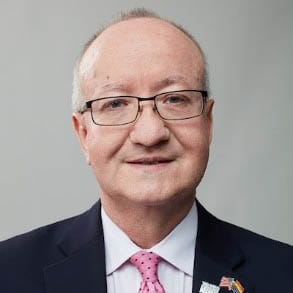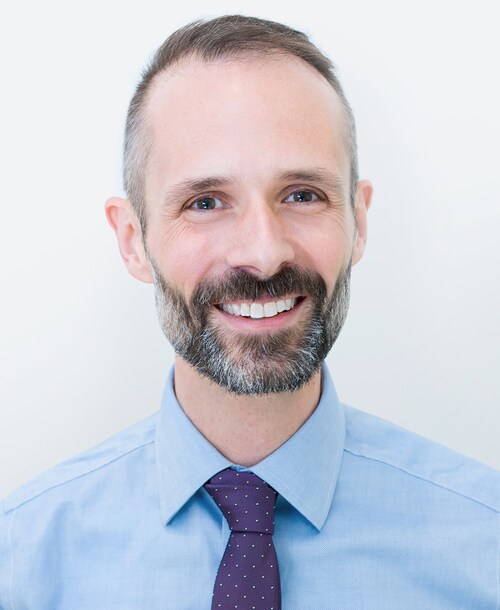Best Practices for Clinical Care in the World Trade Center Health Program – Webinar Series

The World Trade Center (WTC) Health Program presents a free webinar series to highlight best practices in the diagnosis and treatment of 9/11-related conditions. This is an effort to promote and maintain high quality medical care within the Program.
Each webinar in this “Best Practices for Clinical Care” series is based on a peer-reviewed paper that was published in the Archives of Environmental & Occupational Health.
The webinars will help you:
- Identify the epidemiologic evidence that supports an association between September 11 exposures and various medical conditions.
- Describe how to diagnose patients with conditions associated with exposure to the September 11 terrorist attacks and its aftermath.
- Identify where World Trade Center (WTC) Health Program diagnostic and treatment coverage information can be found.
- Describe two or more ways that this educational activity will improve the attendee’s contribution as a team member.
Webinar presenters include clinicians affiliated with the WTC Health Program, including those employed either by the WTC Health Program Clinical Centers of Excellence (CCEs), the WTC Health Registry of the New York City Department of Health and Mental Hygiene, or the National Institute for Occupational Safety and Health (NIOSH).
The views expressed in these Best Practices webinars do not necessarily reflect the official policies or views of the Department of Health and Human Services, the Centers for Disease Control and Prevention (CDC), or NIOSH; nor does the mention of trade names, commercial practices, or organizations imply endorsement by the U.S. Government.
Continuing Education credit is available for all webinars in this series.
Upcoming Webinars
Future webinars are currently being scheduled. Details will be shared when available.
Previous Webinars
Substance Use in Trauma-Exposed Populations: Essentials for Screening and Intervention
December 12, 2024
The 13th installment in the World Trade Center (WTC) Health Program’s Clinical Best Practices Webinar series focused on substance use disorders (SUD).
A growing body of research supports the association between direct exposure to the September 11, 2001, terrorist attacks with both increased rates of harmful alcohol and substance use and an elevated risk of trauma-related disorders. This one-hour training can count towards the eight hours of training on substance use disorders that is newly required for all Drug Enforcement Administration (DEA)-registered practitioners. This requirement was enacted on December 29, 2022 in the Consolidated Appropriations Act of 2023.
This webinar:
- Provided background information on substance use, SUDs, and co-occurring SUD and post-traumatic stress disorder (PTSD) in trauma-exposed populations;
- Described best practices for identifying harmful substance use, the role of psychotherapy and medication for addiction treatment (MAT) in SUD management; and
- Provided recommendations for management of co-occurring SUD and PTSD.
Presenters


This Webinar was presented by Sandra M Lowe, MD and Frank Dowling, MD, DFAPA, FASAM. Dr. Lowe is Medical Director of the World Trade Center Mental Health Program at Mount Sinai and is an Associate Professor of Psychiatry and Environmental Medicine and Public Health at the Icahn School of Medicine at Mount Sinai. Dr. Dowling is Medical Director of Long Island Behavioral Medicine and is a Clinical Associate Professor of Psychiatry at Stony Brook School of Medicine.
Free Continuing Education Credits are available.
Best Practices for Gastroesophageal Reflux Disease (GERD)
October 24, 2024
This was the twelfth installment in the World Trade Center (WTC) Health Program’s Clinical Best Practices Webinar series. Gastroesophageal reflux disease (GERD) is one of the most common health conditions reported among persons exposed to the dust, debris and chemicals after the September 11, 2001 (9/11) attacks in the United States. In the 9/11-exposed population, GERD is often found to be co-morbid with other conditions, such as asthma, post-traumatic stress disorder, and obesity. A high-quality clinical practice guideline for GERD is available from the American College of Gastroenterology. This webinar will summarize research findings on GERD among persons with 9/11 exposures and describe effective diagnostic and treatment strategies.
Presenters


This webinar was delivered by Iris G. Udasin, MD and Ruth A. Lin, MD. Dr. Udasin is a Professor of Environmental and Occupational Medicine at the Rutgers Environmental and Occupational Health Sciences Institute (EOHSI). Dr. Lin is a staff physician at EOHSI.
Free Continuing Education Credits are available.
Best Practices for managing trauma-related disorders related to World Trade Center psychological exposures: PTSD and adjustment disorder
September 26, 2024
This was the eleventh installment in the World Trade Center (WTC) Health Program’s Clinical Best Practices Webinar series. The relationship between exposure to the World Trade Center (WTC) disaster and elevated rates of trauma related psychiatric illnesses in 9/11 responders and survivors has been well documented. This webinar focused on “Trauma and Stressor Related Disorders,” a diagnostic category that includes posttraumatic stress disorder (PTSD) and adjustment disorder. The webinar provided background on 9/11-related trauma exposure, a summary of research findings from 9/11-exposed populations and briefly discussed diagnostic and treatment best practices from selected clinical practice guidelines.
Presenters


This webinar was delivered by Rebecca Rosen, PhD and Peter T. Haugen, PhD. Dr. Rosen is a Clinical Associate Professor at the NYU Grossman School of Medicine, and is Mental Health Director at the World Trade Center Environmental Health Center, NYC Health+Hospitals. Dr. Haugen is Director of Mental Health at the NYU Grossman School of Medicine World Trade Center Health Program Clinical Center of Excellence, New York, NY, USA and is a Clinical Instructor in the Department of Psychiatry, NYU Grossman School of Medicine.
Free Continuing Education Credits are available.
Best Practices for Smoking Cessation
August 15, 2024
The tenth installment in the World Trade Center (WTC) Health Program’s Clinical Best Practices Webinar series explained the addictive characteristics of nicotine and smoking and described effective treatment strategies. This one-hour training can count towards the eight hours of training on substance use disorders that is newly required for all Drug Enforcement Administration (DEA)-registered practitioners. This requirement was enacted on December 29, 2022 in the Consolidated Appropriations Act of 2023.
Cigarette smoking is the leading cause of preventable disease, disability, and death in the United States. The U.S. Preventive Services Task Force (USPSTF) recommends that smoking cessation services be offered to all adults who currently smoke.
Effective treatment includes behavioral counseling and FDA-approved pharmacological treatments; however, combination therapy (i.e., medications and behavioral counseling) are known to be most effective.
Presenters


This webinar was delivered by Geoffrey M. Calvert, MD, MPH, FACP and Sandra M. Lowe, MD. Dr. Calvert is the Associate Director for Clinical Quality at the World Trade Center Health Program, National Institute for Occupational Safety and Health, Centers for Disease Control and Prevention. Dr. Lowe is Medical Director of the World Trade Center Mental Health Program at Mount Sinai and is an Associate Professor of Psychiatry and Environmental Medicine and Public Health at the Icahn School of Medicine at Mount Sinai.
Free Continuing Education Credits are available.
Cancer Screening and Cancer Care
May 23, 2024
This was the ninth installment in the World Trade Center (WTC) Health Program’s Clinical Best Practices Webinar series.
This webinar:
- summarized US Preventive Services Task Force (USPSTF) cancer screening recommendations; and
- briefly discussed the National Comprehensive Cancer Network (NCCN) and the National Cancer Institute (NCI) guidelines.
Epidemiologic studies of 9/11-exposed persons have suggested the presence of elevated risks for some cancers. To detect cancer at an early stage, the USPSTF recommends screening certain asymptomatic persons for lung, colorectal, cervical and breast cancer, but not for other cancers. Also, high quality cancer diagnosis and treatment guidelines are available from the NCCN and the NCI.
Presenter

This webinar was delivered by Geoffrey M. Calvert, MD, MPH, FACP. He is the Associate Director for Clinical Quality at the World Trade Center Health Program, National Institute for Occupational Safety and Health, Centers for Disease Control and Prevention.
Free Continuing Education Credits are available.
Managing Depression and Suicide Risk
March 21, 2024
The eighth installment in the World Trade Center (WTC) Health Program’s Clinical Best Practices Webinar series focused on depression and suicide risk.
A growing body of research supports the association between exposure to the September 11, 2001 (9/11) attacks and increased risk of subsequent depression, particularly among individuals who directly witnessed the attacks or participated in the rescue and recovery efforts. Depressive disorders represent a substantial health burden for 9/11 responders and survivors and are associated with an increased risk of suicide mortality. This highlights the importance of screening for depression and suicidal ideation in this population.
This webinar:
- summarized research findings on depression in 9/11-exposed populations,
- provided critical elements for identifying and managing depression, and
- offered best practices for suicide prevention.
Presenter

This webinar was presented by Sandra M. Lowe, MD. She is Medical Director of the World Trade Center Mental Health Program at the Mount Sinai Clinical Center of Excellence and is an Associate Professor of Psychiatry and Environmental Medicine and Public Health at the Icahn School of Medicine at Mount Sinai.
Free Continuing Education Credits are available.
Diagnosis and Treatment of Chronic Obstructive Pulmonary Disease (COPD)
March 14, 2024, from 12pm-1pm ET
This was the seventh installment in the World Trade Center (WTC) Health Program’s Clinical Best Practices Webinar series. Exposures from the September 11, 2001 (9/11) attacks and their aftermath may have the potential to cause or aggravate COPD.
This webinar:
- summarized research findings on COPD among persons with 9/11 exposures, and
- outlined diagnostic and treatment best practices for COPD. The diagnostic and treatment best practices will be summarized from the 2021 Global Initiative for Chronic Obstructive Lung Disease (GOLD).
Presenter

This webinar was delivered by Rafael E. de la Hoz, MD, MPH. He is a pulmonologist, occupational medicine specialist, internist, and a professor at the Icahn School of Medicine at Mount Sinai.
Free Continuing Education Credits will be available.
Diagnosing and Treating Interstitial Lung Diseases
February 29, 2024, from 12pm-1pm ET
This was the sixth installment in the World Trade Center (WTC) Health Program’s Clinical Best Practices Webinar series. Interstitial lung diseases (ILDs) are a diverse set of related conditions with multiple etiologies, including some with unknown cause. ILDs are often disabling and have a poor prognosis.
This webinar:
- Summarized research findings on ILD among persons with September 11, 2001 (9/11) exposures.
- Summarized pertinent diagnostic and management issues applicable to the diverse group of ILDs observed in the 9/11-exposed population.
Presenter

This webinar was delivered by Rafael E. de la Hoz, MD, MPH. He is a pulmonologist, occupational medicine specialist, internist, and a professor at the Icahn School of Medicine at Mount Sinai.
Free Continuing Education Credits are available.
Diagnosing and Treating Asthma
February 15, 2024, from 12pm-1pm ET
The fifth installment in the WTC Health Program’s Clinical Best Practices seminar series:
- Summarized research findings on asthma among persons with September 11, 2001, (9/11) terrorist attack exposures.
- Presented evidence-based information on the evaluation, diagnosis, and treatment of patients with WTC-related or aggravated asthma. To be considered WTC-related asthma, criteria include defined exposures to the WTC dust and fumes, the presence or aggravation of symptoms that arose within 5 years after the patient’s last WTC dust/fume exposure (the last 9/11 exposures occurred on July 31, 2002), and a WTC-provider diagnosis of asthma.
Presenters


This webinar was delivered by Denise Harrison, MD, and Joan Reibman, MD. Dr. Harrison is a pulmonologist, occupational medicine specialist, internist, Medical Director, and Associate Professor of Medicine at the New York University Grossman School of Medicine. Dr. Reibman is a pulmonologist, internist, and Professor of Medicine and Environmental Medicine at the New York University Grossman School of Medicine.
Free Continuing Education Credits are available.
Diagnosing and treating chronic rhinosinusitis
February 1, 2024, from 12pm-1pm ET
This Webinar was the fourth installment in the World Trade Center (WTC) Health Program’s Clinical Best Practices seminar series.
It summarized research findings on chronic rhinosinusitis (CRS) among persons with September 11, 2001 (9/11) exposures, as well as, diagnostic and treatment best practices for CRS. The diagnostic and treatment best practices were summarized from the International Consensus Statement on Allergy and Rhinology: Rhinosinusitis (ICARS-RS-2021).
Presenters


This Webinar was delivered by Rafael E. de la Hoz, MD, MPH, MS, and Michael R. Shohet, MD. Dr. de la Hoz is a pulmonologist, occupational medicine specialist, internist, and a professor at the Icahn School of Medicine at Mount Sinai. Dr. Shohet is an assistant clinical professor of Otolaryngology and Head and Neck Surgery, Icahn School of Medicine at Mount Sinai.
Free Continuing Education Credits are available.
Obstructive sleep apnea diagnosis and treatment
December 14, 2023, from 12pm-1pm ET
This third installment in the World Trade Center (WTC) Health Program’s Clinical Best Practices seminar series summarized obstructive sleep apnea (OSA) research findings among persons with 9/11 exposures and discussed diagnostic and treatment best practices for OSA.
This webinar:
- Discussed early studies of 9/11-exposed persons that showed an excess of aerodigestive diseases including rhinosinusitis and gastroesophageal reflux, which might increase the risk for OSA.
- Discussed studies of World Trade Center (WTC) responders that report an excess of OSA among those who developed new onset or worsening chronic rhinosinusitis.
- Summarized the diagnostic and treatment best practices from OSA guidelines produced by the American Academy of Sleep Medicine and the Department of Veterans Affairs/Department of Defense.
Presenters


Iris Udasin, MD and Jag Sunderram, MD.
Dr. Udasin is a Professor of Environmental and Occupational Medicine at the Rutgers Environmental and Occupational Health Sciences Institute, and Dr. Sunderram is Professor and Interim Chief of the Division of Pulmonary and Critical Care Medicine at Rutgers-Robert Wood Johnson Medical School.
Free Continuing Education Credits are available.
Tracking diseases related to the terrorist attacks of September 11, 2001
Recorded: November 30, 2023
The World Trade Center (WTC) Health Program invites you to the 2nd of 13 upcoming webinars on clinical best practices in relation to 9/11-related care: Tracking diseases related to the terrorist attacks of September 11, 2001
This webinar:
- Described methods of tracking 9/11-related illnesses despite no public health disease reporting requirements specifically mentioning 9/11;
- Described the 9/11-exposed cohorts that are utilized to identify health effects possibly related to 9/11 exposures; and
- Discussed efforts to track the health experience of 9/11-exposed cohorts, including record linkages to various data registries (e.g., statewide cancer registries and the National Death Index).
Free Continuing Education Credits are available.
Presenter

Geoffrey M. Calvert, MD, MPH, FACP.
Dr. Calvert is the Associate Director for Clinical Quality at the WTC Health Program.
The WTC Health Program: An Introduction to Best Practices
Recorded: October 12, 2023
The WTC Health Program invites you to the first of 13 upcoming seminars on clinical best practices in relation to 9/11-related care.
This first seminar:
- briefly reviewed the events of September 11, 2001,
- described the World Trade Center (WTC) Health Program and the eligibility requirements for Program enrollment, and
- explained the process for identifying the high-quality Clinical Practice Guidelines that will be profiled in subsequent seminars.
Free Continuing Education Credits are available.
Presenter

Geoffrey M. Calvert, MD, MPH, FACP, is the Associate Director for Clinical Quality at the WTC Health Program.
Instructions for Obtaining Continuing Education (CE)
This enduring activity is designed to increase knowledge and enhance competency of clinical practices and strategies.
To receive continuing education (CE) for SCWCWD4740R: Best Practices for Clinical Care in the World Trade Center Health Program please visit CDC TRAIN. Next follow these steps:
- Sign into CDC TRAIN
- Search for recorded “Best Practices” Webinars by entering “WD4740”
- If you attended the live Webinar, search “WC4740”
- Complete the activity
- Pass the posttest at 75% (available at CDC TRAIN)
- Complete the Webinar Evaluation (available at CDC TRAIN)
You can visit CDC TRAIN to find these and other educational activities, receive a certificate for earned CE credits, or to print an ongoing transcript of all of your CDC TRAIN activities.
FEES: No fees are charged for CDC’s CE activities.

